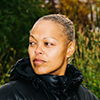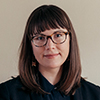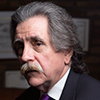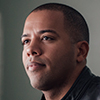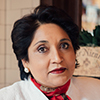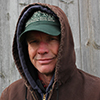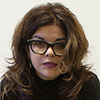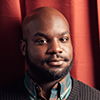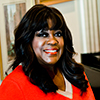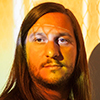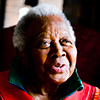



Part 2 of 2. Read part 1 here.
Josephine: After two years, my parents heard there was a Polish army being formed in Russia. My father joined the Polish army. And he left us. So my mother had to kind of fend for herself and the two of us, trying to get out of Siberia. Somehow she was able to get to a point where there was a ship that was taking all the families that were left behind out of Siberia and out of Russia. We ended up in Karachi for, like, two weeks, then they moved us to Tehran. I don’t remember any of it. I just remember what my mother told me, Karachi, and Pahlavi [now Bandar-e Anzali], and Tehran.

I remember learning to write with my finger on the sand in Pahlavi. That was the first thing I learned in my life, writing with my fingers or a stick in the sand of one of the beaches. Then from there, since the war was going on, the British government decided they were going to send us to a safe place, which was Africa. Uganda. It was a camp of 4,000 women and children. And then in ’47, the camps were liquidated. Because my father was in England, we went to England to join my father.
We were there for four years. When the chance came to come to the States, we all came to the States. And you know what? We came here in the same year, from England. He came here in July. He came to Chicago. I came in January of the same year, but I went to Detroit. After seven years, I ended up in Chicago, I go to this concert, whatever, and that’s where we meet. One of the Polish singers was having a concert at Leonard’s. There used to be a restaurant on Milwaukee Avenue, and they used to have dances and concerts and everything else. And going back up to the concert after the intermission, this man followed me.
Stanley: Ever since.

Josephine: And I’m kind of like running ahead because I didn’t really want him to join me, but I had no choice. And I walked up to the table and I said to my friends, I said, “Hey guys, here comes my husband.” I don’t know why I said it, but from that time on, he never left me alone.
So now you tell me. Strange things happen. He went this way from Poland, I went that way from Poland, we end up here and we end up together, all these years. So there’s something there. There’s gotta be something there.
Stanley: A thousand miles this way, a thousand more miles this way.
Josephine: He went back [to Poland] by himself in ’59, I think it was, the minute they opened borders. He found out his mother and sister are back and alive. They thought he was dead.

Stanley: Luckily, I was still writing to my friends. I write to a friend who used to live there and moved a few hundred miles away from there. But one day, she decided to visit. And she says, “Do you know that your brother . . .” [My sister] looks at her and starts crying, “What? No, I don’t believe. We lost him in Auschwitz.” “No! He’s alive!”
Josephine: So he made contact with the family. That was the first time he went there. And then after we were married, the kids were about, oh, five, seven, I guess, we took them to Poland because I wanted them to meet his mother. Of course, we had to report to the government officials, and you know, the stupid man that was sitting there, he says, “Why did you leave the country?” Stupid! I looked at him, and I said, “Well, when somebody’s four years old, I guess you don’t have a choice to leave. You were made.”
Stanley: Stupid question.
Josephine: But you had to be careful at the time what you said, because they could arrest you and put you in jail right there and then.
Stanley: If you said something wrong.

Josephine: You had that fear all the time that something is going to happen to you. So when you walk the streets, I always kind of looked back to see who was behind me, what was going on. But of course, now you go there and you’re free.
Although you know you’re free, I would not want to be by myself. I don’t know why. I still fear that something might happen. I have not gone back to the place where I was born. But I want to go there. We are planning on going next year. I hope we make it.
We haven’t gone [to Auschwitz]. I asked him a few times when we were there if he would want to go, and he said no. Our daughter went, and she was sick for months after that. She just couldn’t take it.
Stanley: It’s hard to accept. Even I sometimes can’t believe a human can do that to another. Sometimes I ask God, “How could this have happened? How could someone like that have come to power and get people to believe this nonsense and not even try to divert or stop it?” It’s happening now. ISIS can walk into a village and murder 300 children. It’s hard to accept. It’s hard to believe.



